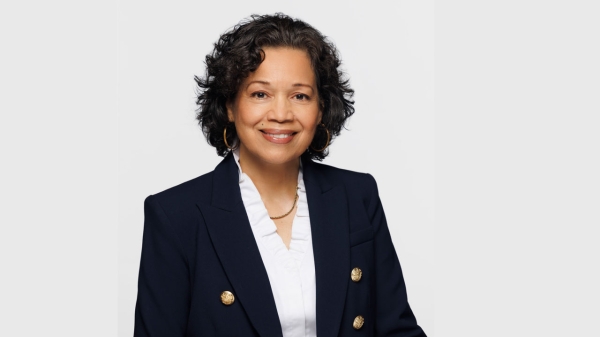A century after his birth, Nelson Mandela's legacy lives among young Africans
Mandela Washington Fellows at ASU working to empower their communities back home

Twenty-five young African leaders visiting Arizona State University this summer are part of a generation that has grown up with the legacy of anti-apartheid revolutionary Nelson Mandela.
Mandela, South Africa's first black head of state and the first elected in a fully representative democratic election, was born July 18, 1918. As president of South Africa from 1994 to 1999, he fought to dismantle apartheid and worked for racial reconciliation.
The young people are at ASU as part of the Mandela Washington Fellowship for Young African Leaders, an intensive six-week program of academic work and community service. This is the fifth year of the program, begun in 2014 as the main part of the Young African Leaders Initiative in the U.S. Department of State.
The 25 fellows at ASU are from 17 countries in Africa and are selected based on their accomplishments. Many own businesses, lead nonprofit organizations or teach. While here, each scholar develops a project that he or she can implement back in their communities. They also learn practical skills, such as marketing strategies and how to write a grant application.
The fellows are between the ages of 25 and 35, so they were children during Mandela’s presidency and the major changes that swept South Africa.
Video by Deanna Dent/ASU Now
Jordan Griffiths, 28, is the policy adviser to the executive mayor of Pretoria, one of the three capitals of South Africa.
“My journey is unique. I’m a young, white South African, so I am a minority,” he said. “I’m an English-speaking white South African, which also puts me in a smaller group as well.
“I was born in 1990, which is when apartheid was still in effect, and I was 4 years old when apartheid ended. I went to a school that was racially diverse, but my siblings did not. They were in high school when apartheid ended and all of a sudden the racial demographics in the school changed. I’ve been grateful to grow up in that society.”
Griffiths said that Mandela’s legacy is in how he effected such dramatic change.
“He spent well over a quarter of his life in prison, under apartheid, and he came out of prison and was able to negotiate a peaceful transition for South Africa from apartheid to a democratic society,” he said.
“If you think about Africa’s history and the levels of conflict on the continent, these things often don’t happen that way.”
Daniel Kanyambu Mbonzo of Kenya said that among Mandela’s lasting contributions to Africa is the leader’s public acknowledgment in 2005 that his son died of AIDS.
“Back when his son died, HIV was not accepted in Africa. We still had stigma. People were thrown out of their communities because they were HIV-positive,” said Mbonzo, who is a nurse and runs a wellness organization.
“But he did not hide it, and he succeeded in pushing the acceptance of HIV across the whole continent.”
Mandela often spoke of the importance of educating all African children, and Janet Leparteleg of Kenya said her favorite Mandela quote is: “Education is the most powerful weapon which you can use to change the world.”
“I use that in my personal project,” said Leparteleg, who is from the Samburu community in Kenya. Known as the “Butterfly People,” they move around frequently in search of water and pasture for livestock, and most of the girls do not go to school.
“I got a degree in business information technology, which was a first for my community. When I started a career in technology I decided to go back and empower the girls,” she said.
Lelparteleg started an education organization, Butterfly Techies, to encourage girls to pursue education and careers in science or technology.
“I’m having my first bunch of girls clearing high school and hopefully (will) have them get their bachelor's in STEM careers,” she said.
Top photo: A statue of Nelson Mandela is in Johannesburg, South Africa. Photo by Pixabay
More Law, journalism and politics

CBS News president to give keynote address at Cronkite School’s spring convocation
Ingrid Ciprián-Matthews, president of CBS News, will serve as the keynote speaker at Arizona State University’s Walter Cronkite School of Journalism and Mass Communication spring 2024 convocation. …

School of Politics and Global Studies director's new book explores mass violence
Why do people commit atrocities and why are certain groups, including religious and ethnic, more vulnerable to large-scale violence? These questions are explored in a new book by Güneş Murat Tezcür…

ASU faculty contributing to improvement of Wikipedia
Many academics have a love-hate relationship with Wikipedia. While the website has information about almost anything you can imagine, the credibility of that information is sometimes suspect. Tracy…